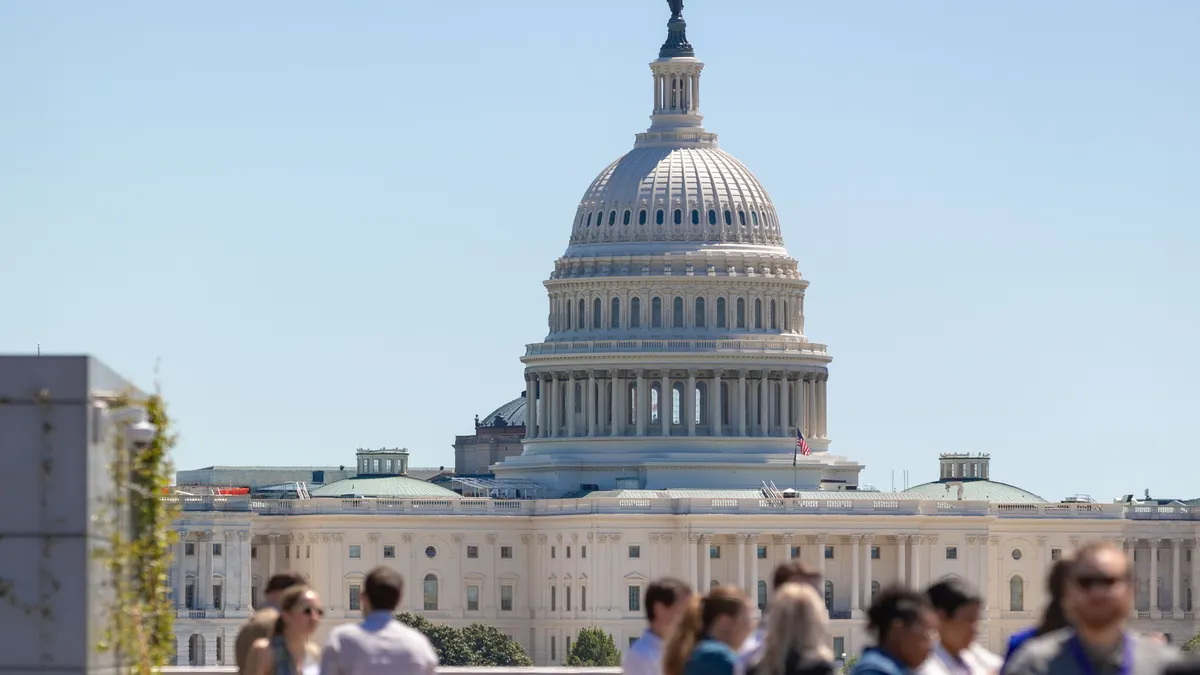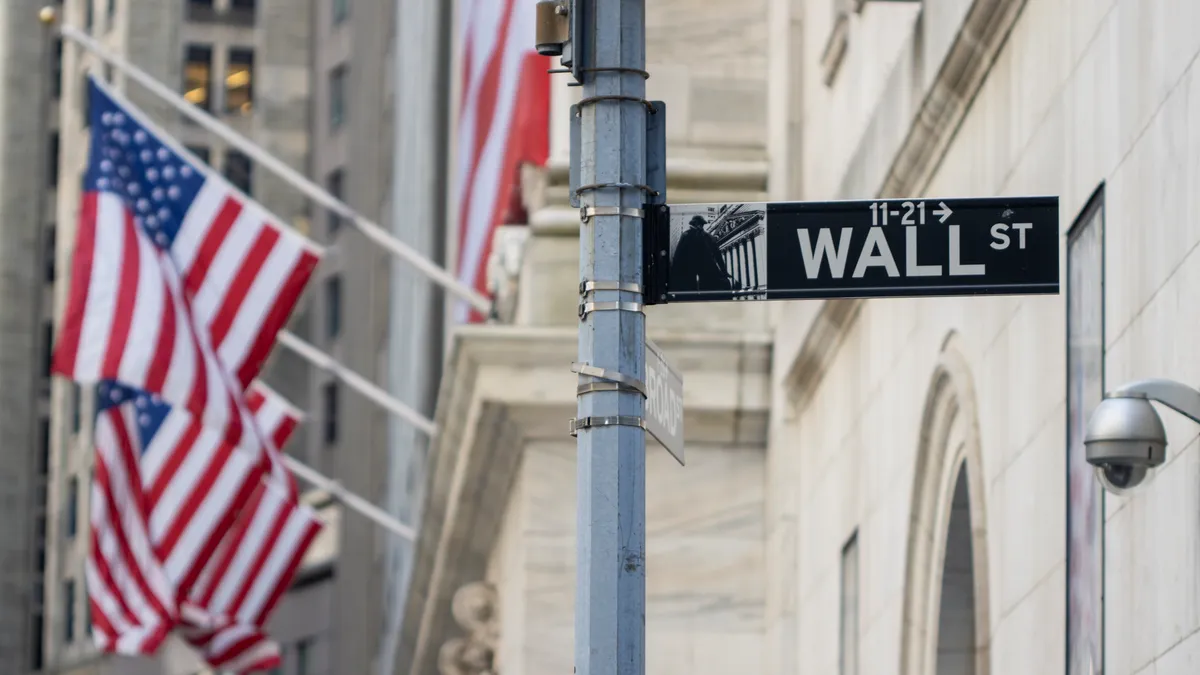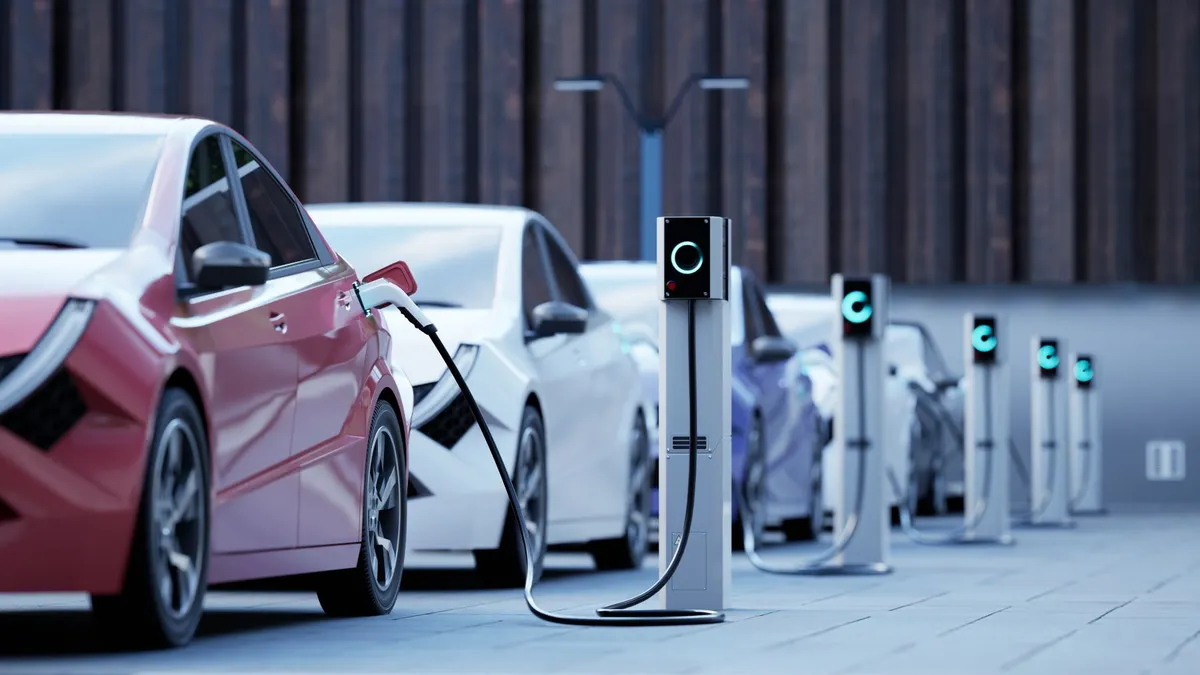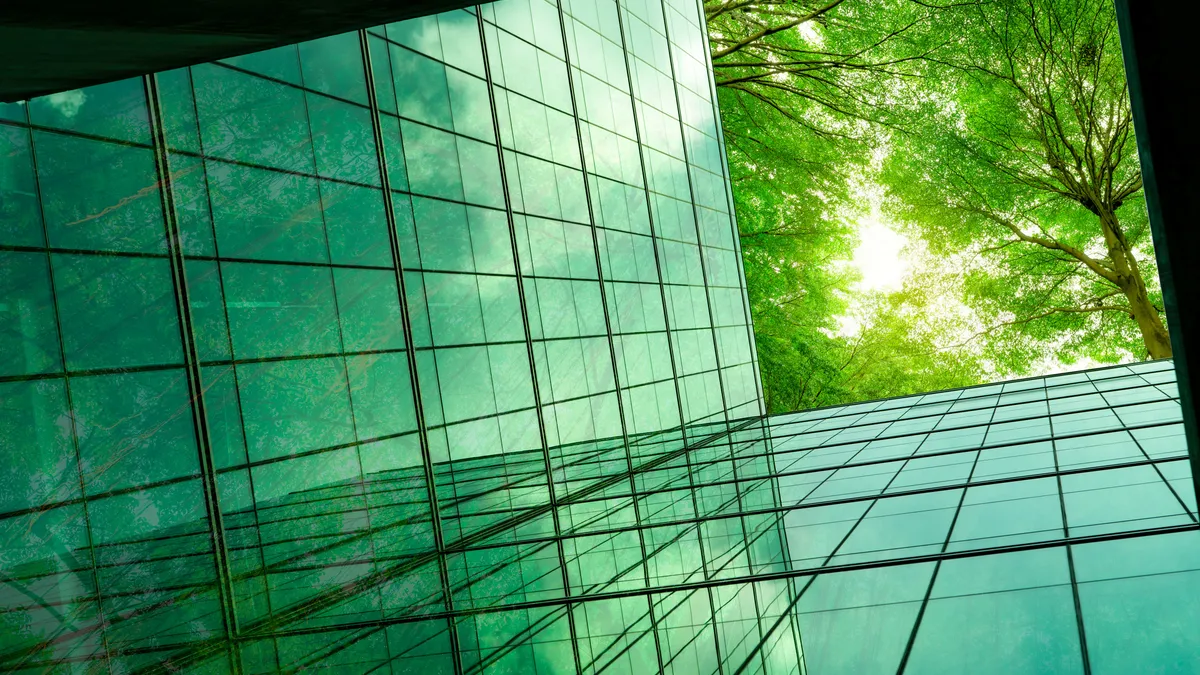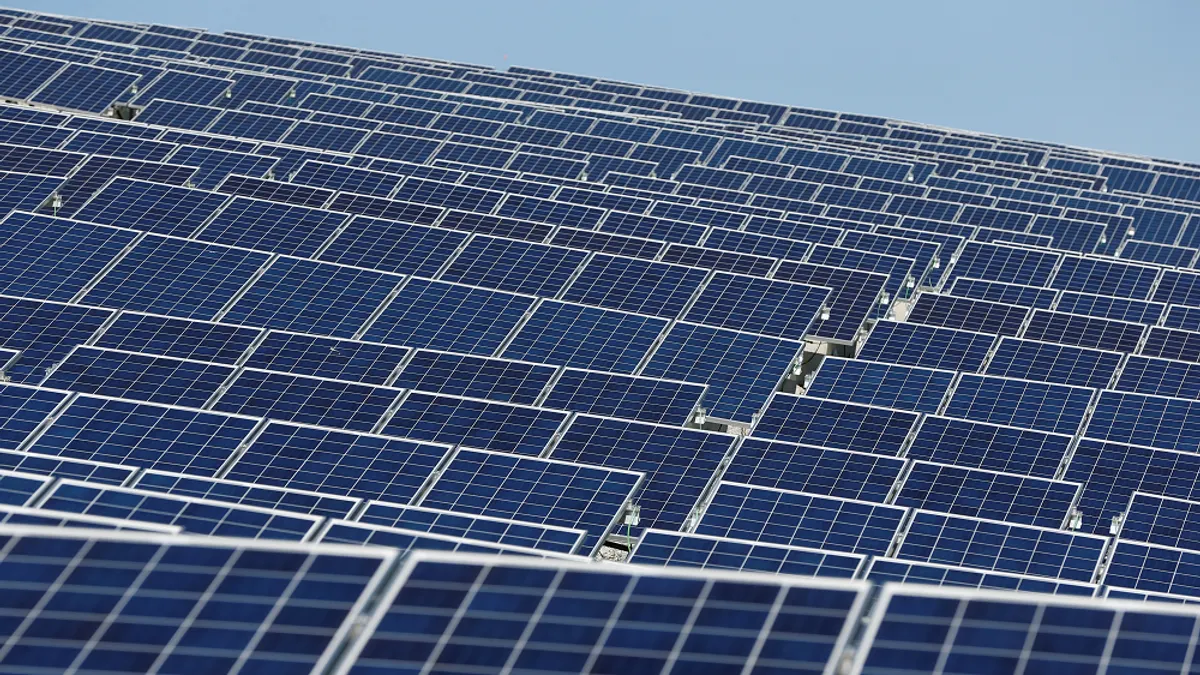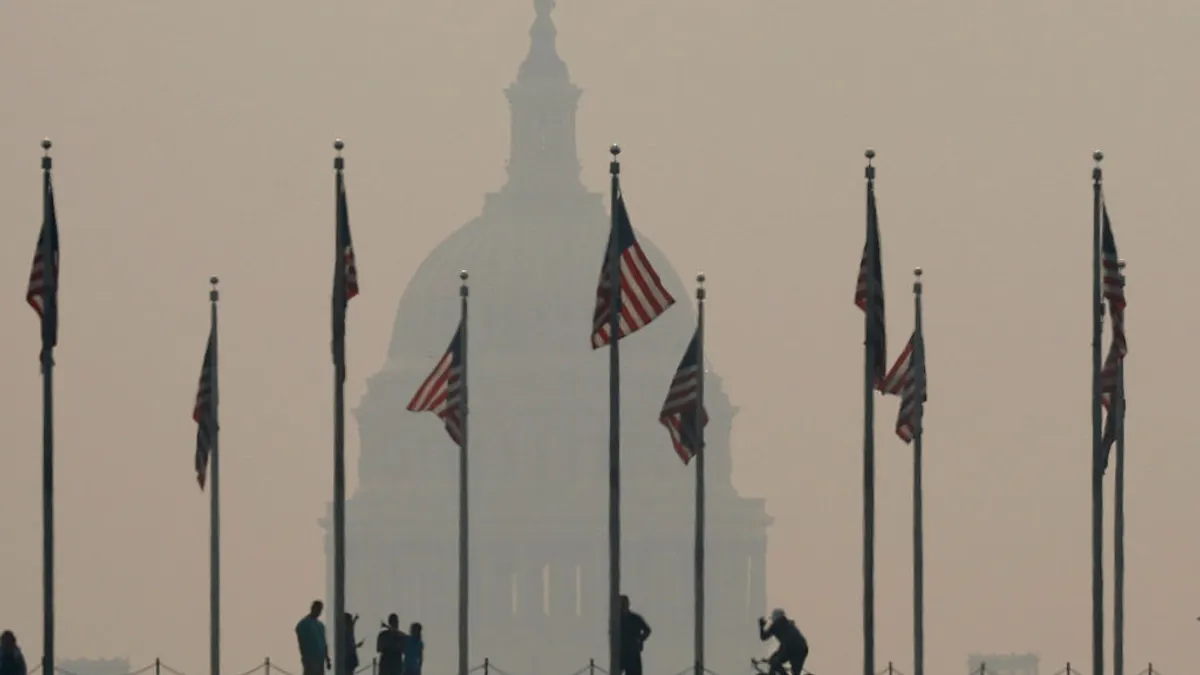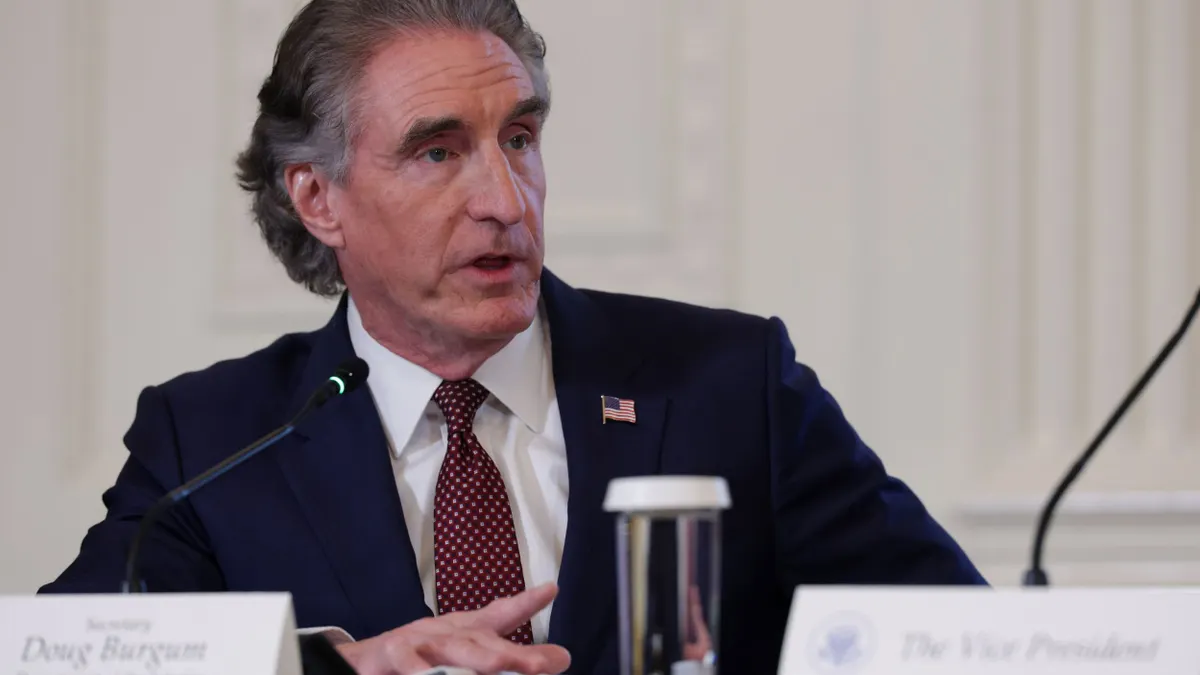Washington, D.C. played host to its first-ever Climate Week earlier this spring from April 28-May 2. The process of building a community capable of pulling off an event at this scale began well before, however, as the all-volunteer led effort grew to foster a climate tech community in the nation’s capital over the span of a year.
More than 4,500 attendees showed up to the over 160 events based around the D.C., Maryland and Virginia area, and a national job fair hosted that week attracted more than 2,000 climate professionals. The fair was hosted by industry group Clean Energy for America in combination with the Clean Energy Leadership to look to place energy and climate officials impacted by government layoffs in green jobs.
Co-founders C’pher Gresham, an entrepreneur who helped start grid technology company Gridvolve, and Vid Mićević, an investor at venture capital fund Collaborative Fund, told ESG Dive in an interview that reaching that point was an iterative endeavor of building and connecting local climate tech communities.
“This didn't happen by accident, and it didn't happen overnight,” Gresham said to open the conference April 28. “We have the incredible mission to establish DC as the home of climate, and we want to drive it locally and globally.”
Editor’s note: This interview has been edited for length and clarity.
ESG DIVE: Why was it important to host a climate week in Washington D.C.?
C’PHER GRESHAM: D.C. is a city of many layers, in different silos and verticals. You have the individuals that work at the local level, down to the neighborhood level, right down to which main street you work on.
So, you have the very local politics, political level; you have the city and regional level, you have the national and federal level conversations; and then you have the global level layers of the cake. But then you have all the different verticals of industry. And one of the things was all these people haven't been in the same room, and we haven't brought them together. There was this monthly meetup called Climate DC that Vid is the founder of, and that's where, that's really the origin of how to build community, and how to build people together and bring people together.
VID MIĆEVIĆ: The Inflation Reduction Act was huge for the climate industry in general. It was a massive bill that helped right size the winds needed and space for a lot of these technologies and commercialize a lot of private capital investment as well. So, that was a massive bill that got passed, but I felt like no one was celebrating in D.C. I thought, “Where's everybody? Why aren't we celebrating?”
And so at the same time, my wife was like, I'm sick of you talking about climate change. Go find some other friends to talk about climate change. And so, I thought, let me just call up some buddies and maybe we'd go get happy hour. C’pher was one of them, of course. We all got together as maybe 10-15 of us, nothing crazy. But we said let's meet up monthly, and from that three years ago has been this monthly sustainability happy hour for professionals in the D.C. area.
That's definitely grown over time. Seeing the need for this community, especially post Covid, was really, really cool. Also we started doing what I call climate tech coalition meetings. So, others organized in the space, so all these organizations were like, we're doing things together.
I want Climate DC to be like, their first stop when someone moves to D.C. is looking for a climate community like, you're more than welcome to come here. But then, if you want to be more with women that feel passionate about this space or arena, cool, we have Eco Women for you. And so there's so many different partners and different ways to do it. So, these climate tech coalitions, call it a convening of conveners, actually ended up being like 80% of the advisory board for DC Climate Week, because they knew a lot of folks. They also had this organizing experience. And it's funny, it's very volunteer driven. And I think that was the core volunteer group that really kind of got this off the ground.
GRESHAM: These are doers, builders and dreamers, and that combination of skills enabled us to come at it without ego around [the idea of] “It's not about it's not about me. It's about spotlighting all the individuals that make up the community.”
And you see that in the organizing structure; every day has theme leads that have taken a track, have taken that theme and have run with it. They put their spin on it. They put their professionals that are from early in career to well established individuals that know up and down the climate value chain to make sure that we're having the right conversations, and it's wouldn't be possible without that level of, that level of like collaboration and willingness to allow everyone to bring their voice to the table.
That ethos applies to even the organizing of [the week]. Yes, we have hubs. This is our first year, so those hubs are really important for our first year because they guarantee that we had some very solid, well thought out themes, guided discussions, panels, lightning round talks and roundtables to really make sure that there was programming for DC Climate Week.
What is the significance of forging forward as federal policy on climate changed direction?
GRESHAM: There was a George Mason and Yale study, [the Spring 2023 edition of Climate Change in the American Mind: Beliefs & Attitudes], that said 74% of individuals in America believe that climate change is real.
If you look at the color of climate week, purple, it represents the combination of red and blue, which is ideologically why it matters now. We've had conversations throughout this week from individuals that work at the Department of Defense working on climate resiliency, to individuals with Conservation International and Nature Conservancy, to local organizations. And while we read the headlines, and while there is fear and individuals may feel grief in these instances, there is a commonality of belief.
And there's a commonality of belief in facts science and charting a path forward. And so, as Bill Nye said in the very opening, let's get organized people. It matters to youth, it matters to grandparents, to build the future that we all want to see. And many individuals through this [process] said we shouldn't do it. Many individuals said we need to change the name [to] Energy and Security week. That just doesn't roll off the tongue. And by being resilient, we didn't let the current moment change the dialog that has underpinned what 74% of the U.S. believes in.
What was the logistical importance of choices like hosting hub days in LEED certified buildings and hiring a carbon accounting platform to offset emissions?
GRESHAM: As we were talking with the advisory board and the executive board, some of the feedback we got from other climate weeks is that it's really hectic to run and it's so exhausting. So, we wanted to create hubs in areas that highlighted the diversity of urban landscapes that D.C. has to offer: from overlooking the capital to Dupont Circle to being east of the river in Congress Heights.
That was extremely important from a location perspective, because we wanted to make sure that every day was Metro accessible and individuals could participate, and also that we were signaling this is about all of D.C., and also all of the D.C. region.
Maryland connects, and we hosted the day one at Johns Hopkins [Ralph O'Connor Sustainable Energy Institute in D.C.]. Yes, they have a space here in D.C., but also is headquartered in Baltimore.
We also worked with organizations that were mission and values aligned, that had an open and inclusive nature to their spaces, their buildings and their organizations, and were willing to open it up.
Those organizations also tended to have mostly LEED certified or have big sustainability practices built into their program. So, Johns Hopkins, MLK Library, the international square, University of Southern California’s] capital campus, and then Sycamore and Oak. All the structures are incredible. So, that was, from an organizing perspective, hugely important. Two of the days were at different ends of the Golden Triangle Business Improvement District, because they are the first LEED certified platinum business improvement business district in the world. And D.C. itself — fun fact — was the first city that was LEED certified.
MIĆEVIĆ: In terms of the carbon emission standpoint, it's something that a lot of us think about. So the most emissions are always going to come from travel. We didn't have that data because we're doing this for the first time. And so, in our questionnaires, when people are signing up for events and we do our check-in process, we always ask “where are you coming from?,” so we have a better understanding of how many people are coming from the West Coast versus locally in D.C., because that's a whole different carbon emissions profile.
We worked with Global Emissionairy, a carbon offsetting platform. They are using a way of permanently sequestering carbon through asphalt, essentially.They volunteered some carbon offsets for us to be a partner, so they're an in-kind supporter. Through that, hopefully with getting more data in terms of where our participants are coming from, we'll have a much better understanding of our total carbon footprint, and we go from there. But we really wanted to keep this as low footprint as possible, given that it's an event focused on sustainability.
GRESHAM: Global Emissionairy is calculating the complete carbon footprint, travel, energy, food vendors, and they're utilizing verified carbon units from recycling roadways. But these units were generated by projects that recycle the very roads connecting us to climate week. So, that's grounding the climate action in like our shared journey to how we arrived here at climate week.
What do you hope attendees take away?
MIĆEVIĆ: It would be hope and resilience, and then also, I hope everyone can lean into their own power and their own leadership. And I hope that they can come join us for the next climate week. Moving forward, I hope they submit their own events, they become partners and sponsors, because this is only a start, and it's a strong start for what's ahead, and I hope they join the movement.
GRESHAM: I hope this is the start of a journey for individuals in their climate journey and then being part of a community. So, if they're a student, I hope that they found a space of inspiration, a potential job at the national job fair and joined up with individuals that have been working in climate for years and decades. I hope that they find a renewed sense of passion, organizing, capacity and ability to take action and the community behind themselves.


